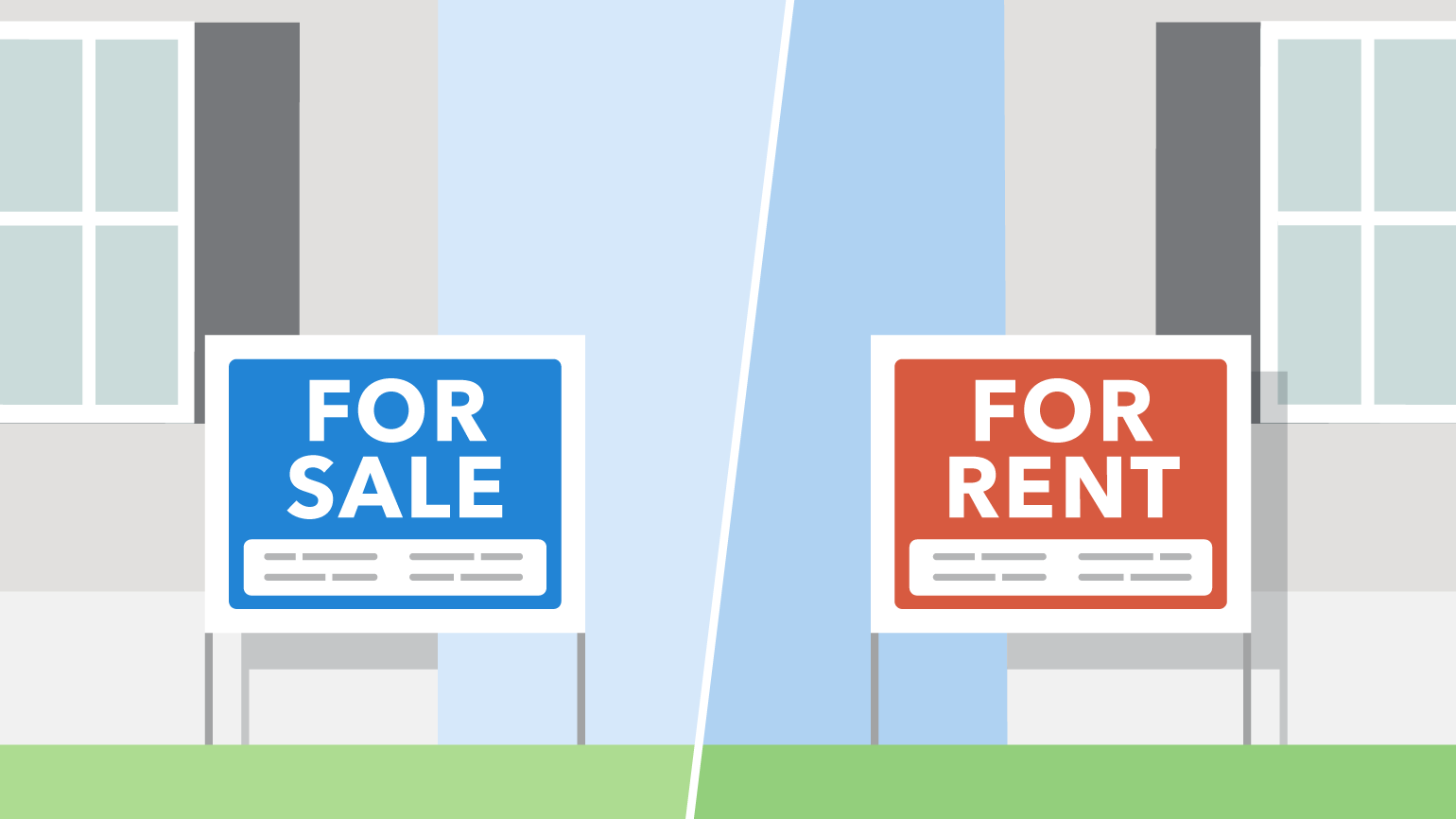Buying vs Renting

Is buying a better option than renting?
Home ownership is a big responsibility — likely the most expensive purchase most of us will ever make. Consider your situation before deciding whether it's best to rent or buy.
Decide what's right – Maybe you already know what's right for you, or maybe you're trying to figure out the best option—either way, the more educated you are, the better informed you'll be.
- Plan to stay in one location
- Have funds for a down payment and closing costs
- Your monthly payments build equity and lead toward home ownership.
- With a fixed-rate mortgage, your monthly principle and interest payments will remain the same for the life of your loan.
- Want the potential tax advantages (check with a tax advisor for details)
- Your mortgage interest may be tax-deductible. (Property taxes and mortgage points may also be deductible; consult your tax advisor).
- If your home increases in value, you could make a profit when you sell.
- A home could be passed on to children or other family members.
- Equity built through home ownership can be used to finance educational expenses, home-improvement projects, small-business startup costs or other needs.
- You can usually/typically make changes or improvements at will.
- A landlord can't decide to sell your house and force you to move.
- Can afford the maintenance costs of owning (repairs, lawn care, etc.)
- Plan to move around and don't want to be tied to one location.
- Monthly payments may be lower than mortgage payments.
- Compared with a mortgage, a lease is a shorter-term commitment.
- Someone else typically performs (and pays for) repairs.
- Rent payments may cover appliances, furniture, utilities and even cable/internet.
- Don't have the funds for a down payment and closing costs.
- Can't afford the potential maintenance costs of owning (repairs, lawn care, etc.)
- No down payment or loan closing costs are required to start renting.
- It's easier to sign a lease than to get approved for a mortgage.
- There's no investment risk if the housing market changes.
- You may be able to avoid home insurance premiums or association fees.
- Are saving for the future.
Here are snapshots of how renting and buying may differ:
Initial Costs
Renting
- Rental application fees
- Broker/Agent fee (if applicable)
- Security deposit
- First—and sometimes last—month's rent
- Moving expenses
Buying
- Mortgage application fees
- Earnest money
- Down payment
- Closing costs
- Moving expenses
Ongoing Costs
Renting
- Rent
- Renter's insurance (if applicable)
- Some utilities may be paid by the landlord—be sure to ask
Buying
- Mortgage
- Property taxes
- Homeowner's insurance
- Homeowner's Association Dues (HOA)/Condo fees (if applicable)
- Private Mortgage Insurance (if applicable)
Maintenance and Repairs
Renting
Included usually as part of the monthly rent (though each property may vary); however, improvements or changes to the property are limited.
Buying
Not included. Maintenance and any repairs are paid separately. However, some homes may include these expenses as part of the monthly HOA/condo fees.
Taxes
Renting
None
Buying
- Pay local property taxes (either monthly as part of an escrow account or you pay directly on a semi-annual or annual basis); however, both mortgage interest and property taxes are usually tax deductible.
- Consult a tax advisor for complete details.
Terms
Renting
- Choose from 3-, 6-, 9- or 12-month terms (or month-to-month) giving you the flexibility to move/change locations.
- Usually the longer the term, the lower the monthly payment; however, there may be penalties if you leave or terminate the lease before the end of the term.
- Fixed payments for the term of the lease only.
Buying
- Own the home until you choose to sell or rent the property.
- HOA fees, property taxes and homeowner’s insurance typically increase over time—so be sure to plan for that in your budget.
Benefits and Features
Renting
- Short-term flexibility
- Ability to move around, change location if needed—especially if new to an area
- Don't have to worry about repairs and maintenance
- Monthly costs are usually fixed for the term of the lease
- Some utilities may be included in your rental payment
Buying
- Long-term stability
- Build value over the long term
- Pride of ownership
- Interest and property taxes are usually tax deductible—check with your tax advisor



